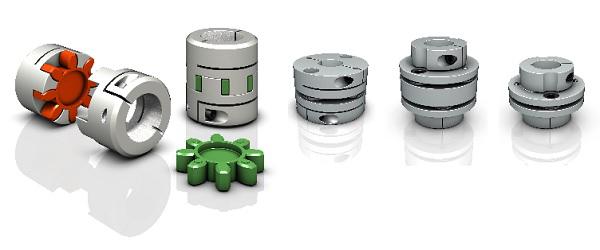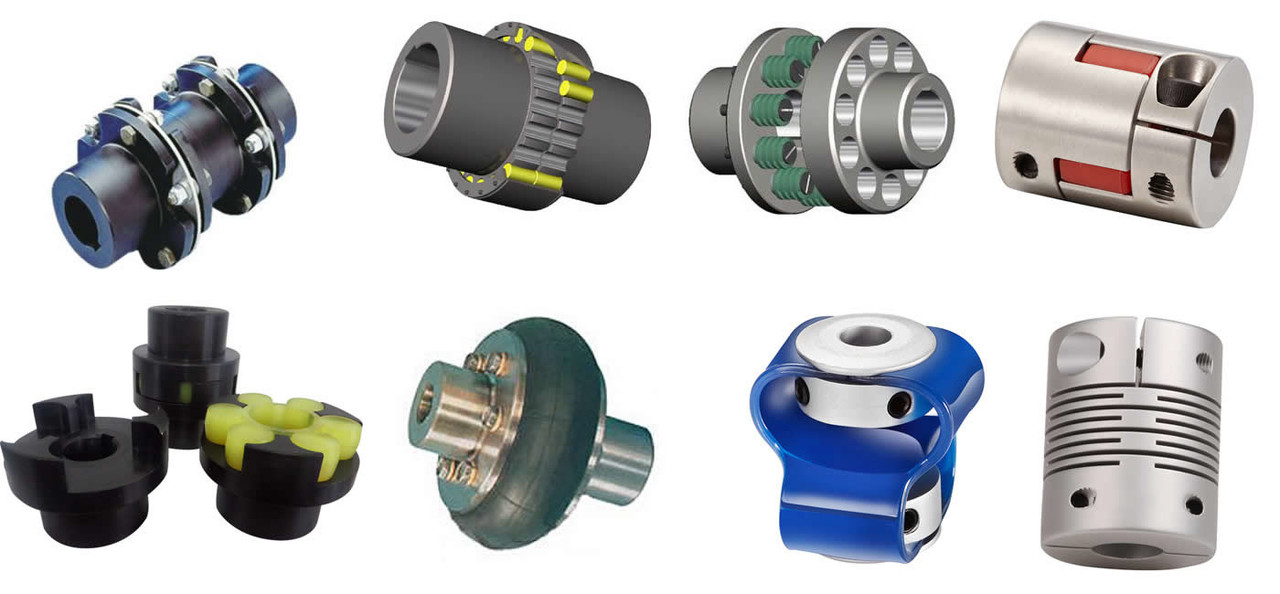Motor Shaft Connector
Introduction to Motor Shaft Connectors
Motor shaft connectors play a crucial role in the transmission of power between mechanical components. Their design and application require a deep understanding of engineering principles to ensure optimal performance and longevity.
Types of Motor Shaft Connectors
There are various types of motor shaft connectors, each designed for specific applications and operating conditions. They can be broadly categorized based on their mechanical properties and the type of connection they facilitate.
Key Features of Motor Shaft Connectors
Key features of motor shaft connectors include their ability to accommodate misalignment, absorb shocks and vibrations, and provide a secure connection between shafts. These attributes are essential for maintaining the efficiency and reliability of mechanical systems.
Materials Used in Motor Shaft Connectors
The selection of materials for motor shaft connectors is critical to their performance. Common materials include steel, aluminum, and composite materials, each offering distinct advantages in terms of strength, weight, and resistance to wear and corrosion.
Design Considerations for Motor Shaft Connectors
Design considerations for motor shaft connectors encompass factors such as load capacity, operating environment, and ease of maintenance. Engineers must carefully balance these factors to develop connectors that meet the specific needs of their applications.
Applications of Motor Shaft Connectors
Motor shaft connectors are used in a wide range of applications, from industrial machinery to automotive systems. Their versatility makes them indispensable components in many different types of mechanical assemblies.
Installation and Maintenance of Motor Shaft Connectors
Proper installation and maintenance of motor shaft connectors are essential for ensuring their longevity and performance. This involves regular inspection, lubrication, and, when necessary, replacement of worn or damaged components.
Performance Optimization of Motor Shaft Connectors
Performance optimization of motor shaft connectors involves using advanced engineering techniques and materials to enhance their efficiency and durability. This can include the use of finite element analysis, precision machining, and surface treatments.
Advantages of Using Motor Shaft Connectors
The advantages of using motor shaft connectors include improved power transmission efficiency, reduced maintenance requirements, and the ability to accommodate misalignment and vibration. These benefits translate into increased operational reliability and cost savings.
Challenges in Motor Shaft Connector Design
Challenges in motor shaft connector design include managing the stresses and strains imposed by dynamic loads, ensuring compatibility with other components, and minimizing the impact of environmental factors such as temperature and humidity.
Future Trends in Motor Shaft Connectors
Future trends in motor shaft connectors are likely to include the development of smart connectors with built-in sensors for real-time monitoring and diagnostics, as well as the use of advanced materials and manufacturing techniques to further enhance performance.
Case Studies of Motor Shaft Connector Applications
Case studies of motor shaft connector applications provide valuable insights into their performance in real-world conditions. These studies can highlight successful implementations as well as areas for improvement.
Regulatory Standards for Motor Shaft Connectors
Regulatory standards for motor shaft connectors ensure that they meet minimum safety and performance requirements. Adherence to these standards is critical for ensuring the reliability and safety of mechanical systems.
Comparative Analysis of Different Motor Shaft Connectors
Comparative analysis of different motor shaft connectors involves evaluating their performance based on various criteria such as load capacity, ease of installation, and maintenance requirements. This analysis can help engineers select the most suitable connector for their application.
Conclusion
In summary, motor shaft connectors are essential components in mechanical systems. Their design, material selection, and proper maintenance are crucial for ensuring optimal performance and longevity.

What are the three types of coupling?
There are three primary types of coupling: rigid couplings, flexible couplings, and fluid couplings. Each type is designed to handle different levels of misalignment and load conditions.

What coupling is used to connect two shafts?
Couplings used to connect two shafts vary based on the specific requirements of the application. Key parameters to consider include:
- Torque Capacity: The maximum torque that the coupling can transmit without failure.
- Misalignment Accommodation: The ability of the coupling to handle angular, parallel, and axial misalignment.
- Operating Environment: Factors like temperature, humidity, and exposure to chemicals or abrasives.
- Material Strength: The durability of the materials used in the coupling, which affects its longevity and performance.
- Ease of Maintenance: How easily the coupling can be inspected, lubricated, and replaced.

What are the two general types of shaft couplings?
The two general types of shaft couplings are rigid couplings and flexible couplings. Rigid couplings are used when precise alignment and zero flexibility are required, while flexible couplings can accommodate varying degrees of misalignment and provide some level of shock absorption and vibration damping.
HZPT is located in Hangzhou, Zhejiang Province, and is a modern enterprise integrating R&D, learning, production, and foreign trade. We adhere to our core values of integrity as our business philosophy, unity, progress, and innovation. We integrate high-tech development, international trade, industrial investment, and domestic and foreign networks into one, focusing on the research and innovation of coupling products. Our business spans Asia, Europe, Africa, and North America, moving towards the vision of becoming an international group with global influence. Our company specializes in the production of drum couplings, spring pin couplings, serpentine spring couplings, universal couplings, star couplings, expansion couplings, diaphragm couplings, tire couplings, and other series of coupling products. We have a complete and scientific quality management system and our own technology development and testing department, with CQC, ISO, CE, and other certificates. We can provide customers with excellent sales services and technical support. Serving more than a hundred cooperative enterprises, adhering to the business philosophy of “people-oriented, customer first,” we work sincerely with customers for mutual development.
We specialize in producing and selling shaft couplings. Here are five key advantages of our products and company:
- Advanced R&D Capabilities: Our dedicated research and development team ensures that we are at the forefront of coupling technology, providing innovative solutions tailored to our customers’ needs.
- Comprehensive Quality Management: We maintain a rigorous quality management system that ensures every product meets the highest standards of performance and reliability.
- Global Reach: With a robust international presence, we cater to clients across Asia, Europe, Africa, and North America, ensuring prompt and efficient service delivery.
- Wide Range of Products: Our extensive product line includes various types of couplings, allowing us to meet diverse industrial requirements with precision-engineered solutions.
- Certified Excellence: Our products and processes are certified by CQC, ISO, and CE, providing our customers with confidence in the quality and safety of our offerings.
